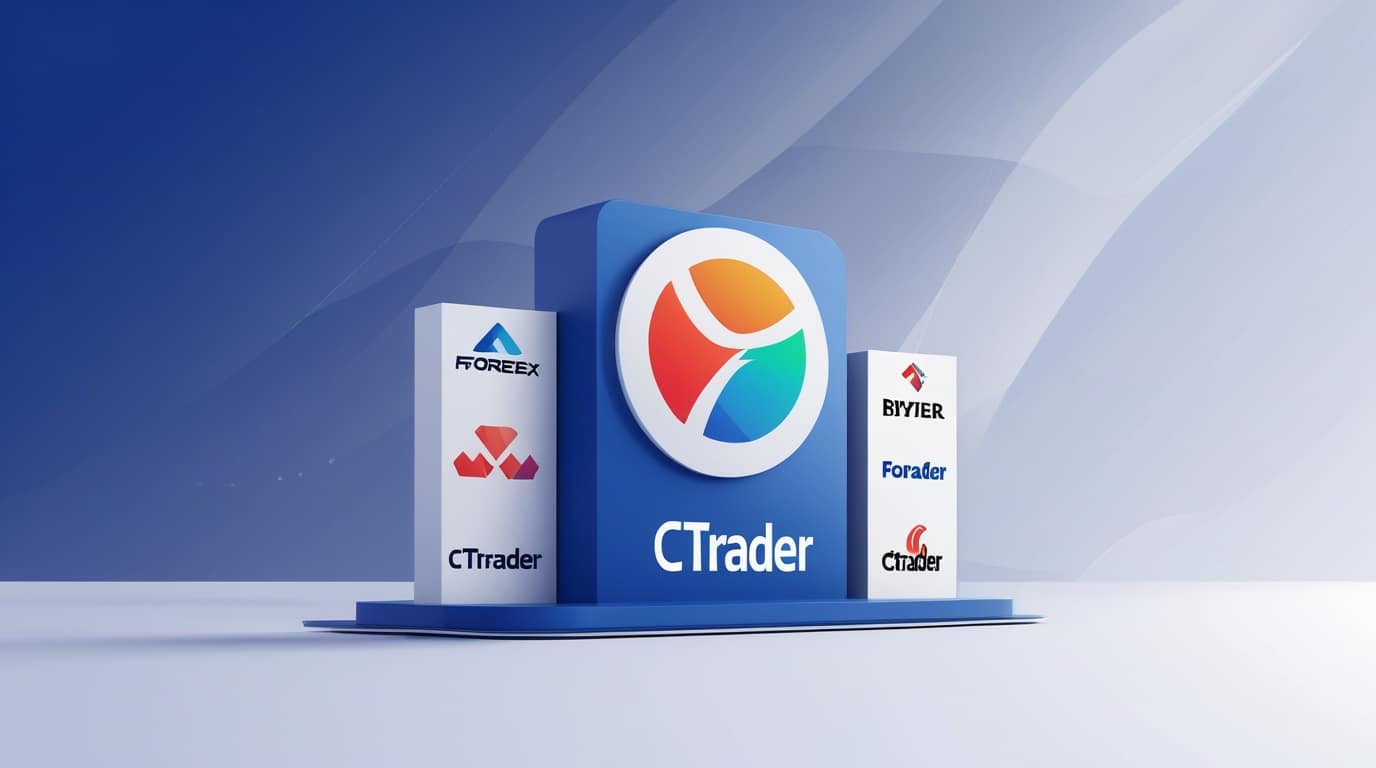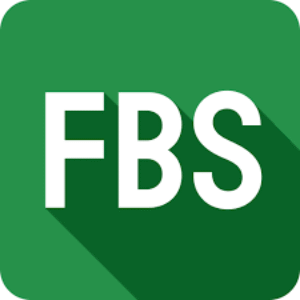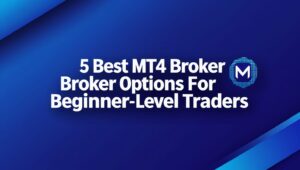
The cTrader platform has emerged as a popular alternative to MetaTrader for Forex and CFD trading, prized for its transparent execution and advanced features. Traders seeking a modern interface, deep market insight, and robust algorithmic tools often gravitate toward brokers offering cTrader. In this comparison, we evaluate five of the top globally available cTrader brokers – IC Markets, Pepperstone, FP Markets, FxPro, and BlackBull Markets – analyzing their regulation, fees, execution quality, user interface, customer support, asset range, and educational resources. Each broker brings unique strengths to their cTrader integration, which we will explore in detail.
Understanding the cTrader Platform
Launched in 2011 by Spotware Systems, cTrader is a third-party trading platform designed for No Dealing Desk (NDD) brokerage environments. It features a user-friendly interface with advanced charting tools and technical indicators, giving it a contemporary look and intuitive feel for traders. A hallmark of cTrader is its Level II pricing (Depth of Market), which offers full market depth transparency – a feature highly valued by ECN brokers and their clients. The platform supports multiple timeframes, 50+ technical indicators, and 20+ chart types, catering to both novice and professional traders.
Beyond manual trading, cTrader excels in algorithmic trading capabilities. It includes the cTrader Automate API (formerly cAlgo) that lets users program cBots and custom indicators in C# for automated strategies. Traders can run these algorithms via cTrader’s cloud infrastructure, ensuring strategies execute with low latency independent of the user’s device. The platform is available on desktop, web, and mobile, with a multilingual interface that makes it accessible to a global audience.
Perhaps most importantly, cTrader is known for fostering transparency and fairness in trade execution. Industry experts often highlight that brokers offering cTrader adhere to an agency model that prevents price manipulation. As Andrey Pavlov, CEO of Spotware (cTrader’s developer), explains: “With cTrader there is no way a bucket-shop broker can mess with execution… if you see a broker offering cTrader – you can be sure that you will be executed properly.” This alignment of interests – where the broker simply passes trades to the market – builds trust for traders. In short, cTrader provides an institutional-grade trading experience with features like advanced order types, detailed trade analytics, and cloud-saving of templates, all within a sleek and responsive interface.
Below we compare the top five cTrader brokers globally, each of which integrates this powerful platform into its offering. We’ll examine how they stack up on critical factors and highlight unique features that enhance their cTrader integration.
IC Markets – Raw Spreads and Lightning-Fast Execution
IC Markets is widely regarded as one of the best brokers for cTrader users, particularly appealing to high-volume and algorithmic traders. Founded in 2007 and headquartered in Australia, IC Markets is regulated by multiple authorities, including the Australian ASIC and Cyprus’s CySEC, among othersbestbrokers.com. This strong regulatory oversight, combined with client fund segregation and negative balance protection, ensures a high level of safety and trust.
Trading Fees and Commissions: IC Markets offers some of the tightest spreads in the industry, especially on its cTrader accounts. The broker’s pricing is based on an ECN model with raw interbank spreads that can be as low as 0.0 pips on major pairs. On cTrader, IC Markets charges a commission of roughly $3 per side per standard lot (100k), equating to $6 round-turn, which keeps all-in costs extremely competitive. For example, the average EUR/USD effective spread (including commission) is around 0.62 pips. Such low fees make IC Markets a top choice for scalpers and high-frequency traders who need minimal friction in trading costs.
Platform Execution and User Experience: IC Markets has built its reputation on exceptional execution speed and quality. The broker’s trading infrastructure utilizes Equinix data centers (NY4 in New York and LD5 in London), ensuring ultra-low latency connectivity to liquidity providers. In practice, order execution averages under 40 milliseconds, with deep liquidity that allows large orders to be filled at the best available prices. Traders can place orders within the spread and benefit from no minimum distance on stop/limit orders – an important feature for algorithmic strategies. IC Markets fully permits scalping, hedging, and high-frequency algos, aligning with cTrader’s strengths. The cTrader interface is available via desktop, web, and mobile, giving IC Markets clients seamless access to advanced features like customizable charts, one-click trading, and cTrader’s cBot automation on any device.
Customer Support and Resources: Clients of IC Markets have access to 24/7 customer support, including live chat, phone, and email assistance in multiple languages. During our research, support was noted as responsive and knowledgeable. The broker provides a modest selection of research and educational materials – such as market analysis articles and periodic webinars – though these resources are not as extensive as some competitors. This focus on a pure trading environment means IC Markets emphasizes execution and pricing over in-house educational content. Nevertheless, third-party tools like AutoChartist and Trading Central are available to clients for market analysis. The asset range at IC Markets is very broad: over 60 currency pairs plus CFDs on indices, commodities, cryptocurrencies, and thousands of global stocks (via other platforms), totaling 3,500+ instruments. This variety allows traders to diversify beyond Forex if they wish.
Expert insight: Steven Hatzakis, a noted industry researcher, ranked IC Markets as his #1 choice for cTrader in 2025, citing “low trading costs, multiple execution methods, and a robust order execution policy which supports complex and advanced strategies… IC Markets fits the bill in all of these categories, making it my top choice for cTrader.” Such praise underscores IC Markets’ strength as a cTrader broker that delivers on the key needs of demanding traders.
Pros and Cons: Below is a summary of IC Markets’ advantages and drawbacks, particularly regarding its cTrader offering:
| IC Markets – Pros | IC Markets – Cons |
| – Trusted regulation (ASIC, CySEC, etc.) ensuring fund safety | – Primarily regulated in Australia (fewer top-tier licenses in other major markets) |
| – Ultra-tight spreads and low commissions ($3 per side on cTrader) | – Research and educational content is relatively limited |
| – Lightning-fast execution (<40ms) with deep liquidity ideal for scalping | – No U.S. clients (not available to traders in the United States) |
| – Supports all trading styles (scalping, algos) with robust cTrader integration | – No guaranteed stop-loss order feature (standard for ECN brokers) |
Pepperstone – Competitive Razor Account and Innovative Tools
Pepperstone has grown into a globally acclaimed forex broker known for its excellent trading conditions and broad platform support. Founded in 2010 in Australia, Pepperstone is regulated by seven authorities, including top-tier regulators like the UK’s FCA, Germany’s BaFin, ASIC in Australia, and CySEC in Cyprus. This extensive regulatory compliance and a spotless track record over more than a decade contribute to Pepperstone’s reputation as a highly trusted broker. Pepperstone was an early adopter of cTrader and continues to offer it alongside MetaTrader 4/5 and others, giving clients a rich choice of platforms.
Trading Fees and Commissions: A key attraction of Pepperstone is its Razor account, which provides raw spreads plus commission. On cTrader Razor, spreads on major pairs can average 0.1 pips (e.g. on EUR/USD), with a commission equivalent of about 0.7 pips, for an effective spread around 0.8 pips per trade. This pricing is extremely competitive and ideal for algorithmic and high-volume traders. The commission is roughly $6–$7 per round turn per lot on Razor accounts, similar to other leading ECN brokers. Pepperstone also offers a Standard account (spread-only) with no commission, where spreads start from 1.0 pips – suitable for casual traders not wanting to calculate commissions. Notably, there is no minimum deposit requirement to open an account (though around $200 is recommended), making Pepperstone accessible to a wide range of clients.
Platform Execution and Features: Pepperstone has invested heavily in execution technology to ensure that cTrader users experience fast and reliable trade fills. Orders are routed through Pepperstone’s low-latency execution engine, connecting to a network of liquidity providers. This results in typical execution speeds under 30ms for trades – essentially instantaneous for end-users. The broker’s infrastructure supports depth of market (DOM) quotes and Volume-Weighted Average Price (VWAP) fills on large orders, meaning even high-volume trades can be executed with minimal slippage. Partial order fills are allowed, and both positive and negative slippage can occur, reflecting a true market environment on cTrader. Pepperstone’s cTrader integration is also notable for enabling algorithmic trading through cTrader Automate (with C#) and offering an open API for advanced users. Additionally, Pepperstone provides a range of social/copy trading options – including Myfxbook, MetaTrader Signals, DupliTrade, and the native cTrader Copy service – allowing traders to mirror strategies or monetize their own.
Clients can use cTrader on desktop or the sleek cTrader mobile app, and Pepperstone further distinguishes itself by also supporting TradingView integration and a proprietary web platform, should traders wish to diversify platforms. In short, Pepperstone offers one of the most versatile platform selections in the industry, with cTrader sitting prominently for those who want its advanced capabilities.
Customer Support and Education: Pepperstone’s customer support is available 24 hours, five days a week (aligned with the Forex market), and is known for being responsive and helpful. The broker has local offices or contacts in numerous jurisdictions, providing multilingual support (English, Spanish, Arabic, Italian, German, and more). In terms of resources, Pepperstone shines with a strong research and education section. Traders have access to daily market analysis, news updates, and expert commentary (e.g., from Pepperstone’s own market analysts). According to one review, “Pepperstone’s analysis section features well-explained market commentary and trade ideas… Pepperstone research [is] among the best offered by brokers.” The broker also provides webinars and trading courses for beginners, ensuring less experienced clients can build their skills. For advanced traders, Pepperstone’s Active Trader Program offers rebates that further reduce costs for high-volume trading, which can be especially beneficial on cTrader accounts.
Pepperstone’s asset range includes over 1,200 instruments: dozens of currency pairs, a wide array of stock CFDs (particularly U.S., U.K., and AUS shares), indices, commodities, cryptocurrencies, and even currency indices and ETFs. While this is a broad selection, it is worth noting that the total number of tradeable symbols (around 1,700) is slightly lower than some industry leaders that offer tens of thousands of instruments. Nevertheless, for most traders, Pepperstone provides more than enough diversity to build a multi-asset portfolio.
Expert insight: In a recent industry review, financial analyst Tobi Amure summarized Pepperstone’s strengths: “Pepperstone has earned its reputation as a market leader for high-frequency, algorithmic, and intraday trading… Its unmatched execution speeds, broad platform support, and smart trading tools make it a top broker for performance-driven traders.” This underscores Pepperstone’s status as an ideal choice for those who value fast execution and flexible platform options like cTrader.
Pros and Cons: The table below highlights the key advantages and disadvantages of Pepperstone’s cTrader offering:
| Pepperstone – Pros | Pepperstone – Cons |
| – Multi-regulated (ASIC, FCA, CySEC, BaFin, etc.) with a strong trust record | – Slightly fewer total instruments than some competitors (e.g. some exotic shares or niche markets not offered) |
| – Razor account with ultra-competitive spreads (0.0 pips raw) and low commissions | – Educational content lacks interactive elements (no structured courses with quizzes/progress tracking) |
| – Fast execution and deep liquidity, enabling minimal slippage and partial fills on cTrader | – No 24/7 support (customer service is 24/5, weekdays only) |
| – Wide platform choice (cTrader, MT4/MT5, TradingView) plus rich copy trading integrations | – Not available to U.S. clients due to regulatory restrictions |
FP Markets – Low-Cost Trading and Social Trading Features
FP Markets is an Australian broker established in 2005 that has become a top destination for traders seeking value pricing and multi-asset access. It is regulated by ASIC in Australia and CySEC in Cyprus, among other licenses (including in Seychelles and South Africa), allowing it to serve a broad client base. FP Markets introduced cTrader to complement its MetaTrader offerings and has positioned itself as an affordable yet reliable choice for cTrader enthusiasts.
Trading Fees and Commissions: FP Markets stands out for its very low trading costs, particularly on its Raw ECN account available through cTrader. On the FP Markets cTrader Raw account, spreads on major pairs are almost institutional-grade – for instance, the EUR/USD spread can be around 0.1 pips at peak liquidity. The commission on cTrader is a flat $3 per side, per lot (100k), totaling $6 round-turn, which is among the lowest commission rates in the industry. This means a typical trade’s total cost might be ~0.7 pips (spread + commission) – an extremely competitive rate that appeals to algorithmic and high-volume traders. Notably, FP Markets does not increase its cTrader commission compared to MetaTrader (some brokers charge extra on cTrader, but FP Markets keeps it low). The broker also offers a Standard account on cTrader (with no commissions, spreads starting from ~1.1 pips) for those who prefer an all-in spread. With a minimum deposit of about $100 AUD (or equivalent) to open an account, FP Markets provides an accessible entry point to enjoy cTrader’s benefits.
Execution and Platform Integration: FP Markets employs an ECN/STP execution model on cTrader, routing client orders to liquidity providers with no dealing desk intervention. This ensures that traders get direct market access with full transparency. The broker’s infrastructure, similar to peers, is hosted in Equinix data centers which helps achieve low latency execution. FP Markets fully supports scalping, hedging, and automated trading strategies – the cTrader platform integration is seamless, with no restrictions on EAs or cBots. While specific execution speed metrics for FP Markets are not heavily publicized, the broker’s technology stack is known to be robust and has handled high-volume conditions without issue. Traders using FP Markets cTrader can access all of the platform’s advanced features such as Level II market depth, detachable charts, customizable indicators, and one-click trading. The platform is available on desktop, web, and mobile, ensuring a smooth user experience across devices. Another highlight is FP Markets’ support for social trading – the broker offers multiple copy trading options (including Myfxbook AutoTrade and MetaTrader signals, in addition to cTrader Copy) to mirror other traders’ strategies. This is a boon for newer traders who want to learn or investors seeking passive trading opportunities.
Customer Support and Education: FP Markets provides customer service 24/5 via live chat, phone, and email, with support centers in Australia and Cyprus. The support is generally well-rated, offering prompt assistance on technical and account queries. In terms of educational resources, FP Markets offers a variety of educational tools and content on its website – such as trading tutorials, ebooks, webinars, and a knowledge base – to help traders improve their understanding of forex and CFD trading. Additionally, the broker’s Trader’s Hub features daily market analysis, technical outlooks, and news updates that clients may find useful. While the educational section is solid, it may not be as comprehensive or interactive as some larger brokers (for example, there are no gamified courses or quizzes). Still, FP Markets covers the essential topics for beginners and provides ample market insights for experienced traders to stay informed.
When it comes to the asset range, FP Markets is particularly impressive. The broker offers over 60 currency pairs and a vast array of CFDs: indices from major exchanges, commodities (metals, energy, agriculture), cryptocurrencies, and an extensive selection of shares and ETFs from global markets. In total, FP Markets claims to offer 10,000+ trading instruments, though many of the individual share CFDs are accessible via its IRESS platform. On cTrader specifically, traders can access all major asset classes (FX, indices, commodities, crypto) but not the full share CFD catalogue (share trading is handled through a separate equities platform). Nonetheless, for most cTrader users, the available range covers all commonly traded instruments and beyond.
Unique Features: FP Markets has a couple of notable features that enhance its cTrader integration. First, the pricing and commission structure on cTrader is slightly better than on MetaTrader for the same Raw account – for example, the commission is $6 per lot on cTrader vs $7 on MT4/MT5 in some cases, effectively rewarding traders for choosing cTrader. Second, FP Markets maintains an ECN liquidity mix that often results in spreads even tighter than advertised during peak times, benefiting scalpers seeking price improvements. Lastly, while not a platform feature, it’s worth noting FP Markets’ Active Traders program: although they don’t have a formal rebate program for forex, they do offer volume-based discounts on certain market data fees (useful for stock traders) and can negotiate better conditions for very large accounts. Overall, FP Markets delivers a balanced package of low-cost trading and rich functionality for cTrader users.
Pros and Cons: Here is a quick overview of FP Markets in terms of strengths and weaknesses:
| FP Markets – Pros | FP Markets – Cons |
| – Well-regulated (ASIC in Australia, CySEC in EU) providing client protection | – Lacks additional tier-1 licenses like UK/US (primarily AUS/EU regulated) |
| – Very low spreads and commissions on cTrader Raw account (e.g. 0.1 pip EUR/USD + $6/lot) | – No explicit high-volume rebate program (limited perks for very large traders beyond already low costs |
| – Supports social copy trading across multiple platforms (cTrader Copy, Myfxbook, etc.) | – Share CFDs not directly tradable on cTrader (requires separate platform for full stock range) |
| – Huge range of markets (forex, CFDs on indices, commodities, crypto, thousands of shares) | – Educational resources are basic – informative but not as interactive or extensive as some competitors’ offerings |
FxPro – Fast Execution with Integrated Trading Tools
FxPro is a veteran broker founded in 2006, known for its global reach and comprehensive trading services. Serving clients in over 170 countries, FxPro is regulated by multiple authorities: notably the UK’s FCA, Cyprus’s CySEC, South Africa’s FSCA, and the SCB in the Bahamas. This strong regulatory footing underscores FxPro’s long-standing commitment to security and fairness. FxPro was one of the early adopters of the cTrader platform and has continued to innovate its use, integrating unique tools into the cTrader experience.
Trading Fees and Accounts: FxPro provides several account types, but when it comes to cTrader, the broker typically offers a dedicated cTrader account with an agency execution model. The cTrader account at FxPro features raw spreads plus a commission – similar to an ECN account. Spreads on cTrader can be very tight (near 0 on majors during liquid times), and the commission is about $3.5 per lot per side (i.e. $7 per round turn) in the “Raw+” pricing tier. This is a competitive rate, though slightly higher than some peers like IC Markets or FP Markets by a few tenths of a pip. For example, FxPro’s all-in EUR/USD cost might land around ~0.7–1.0 pips depending on market conditions, which is reasonable but “pricing trails industry leaders” according to one comparison. FxPro also has other account types (such as Instant or Fixed spread accounts on MT4), but those are not applicable to cTrader. With cTrader, you’re getting market execution and floating spreads. The minimum deposit at FxPro is $100, making it easy for most traders to get started.
Execution and Performance: FxPro has invested significantly in technology to ensure fast and reliable execution across its platforms. In fact, the broker reports an average execution speed of <12 milliseconds, thanks to its optimized trading servers and liquidity aggregation. This lightning-fast execution is a key benefit for cTrader users, especially those running automated strategies or trading during volatile news events. FxPro’s model for cTrader is fully No Dealing Desk, meaning orders are filled via its pool of liquidity providers without requotes. The broker has a reputation for handling large order sizes with “clean execution”, as noted in one review of their cTrader offering. This is partly due to ample liquidity and also FxPro’s policy of allowing partial fills rather than rejecting orders. Uniquely, FxPro enhances the cTrader platform by integrating Trading Central’s tools directly into the platform. Clients get access to Trading Central’s market sentiment indicators and chart analysis widgets within cTrader, providing actionable insights without needing to leave the platform. This integration of third-party analytics is a feature not all brokers offer on cTrader. Additionally, FxPro offers its own VPS service (for a fee or free for high-volume clients) for traders who want to run cTrader algorithms 24/7 with minimal latency.
Platform Features and User Interface: Traders using FxPro can access cTrader on all supported devices, and the platform’s interface is consistent: a modern dark-themed layout with intuitive controls. FxPro allows unlimited use of cBots and custom indicators, appealing to developers and quant traders. The broker also provides other platforms (MT4, MT5, and its own FxPro Edge platform), but one can seamlessly use cTrader for one’s primary trading and still use FxPro’s mobile app or web trader for quick monitoring if needed. The user interface of cTrader itself is already highly regarded; what FxPro adds is stability (their servers have high uptime) and that integrated content (news, analysis). The platform also connects to FxPro’s client dashboard for account management – deposits, withdrawals, and internal transfers can all be done without hassle, and then funds appear in the cTrader account.
Customer Support and Education: FxPro provides customer support 24/5 via live chat, email, and phone, in over 20 languages. The support is generally praised for professionalism – understandable given FxPro’s large international client base. For education, FxPro goes above and beyond many CFD brokers. It offers the FxPro Trading Academy, which includes free online courses for beginners and advanced topics, trading webinars, tutorial videos, and articles on fundamental and technical analysis. These resources are structured into interactive lessons and even include quizzes to test knowledge, which is somewhat uncommon among brokers and speaks to FxPro’s commitment to client education. Furthermore, FxPro’s website and YouTube channel host a wealth of content explaining trading concepts and platform usage (including how to use cTrader effectively).
In terms of research, FxPro provides daily market news, an economic calendar, and periodic reports. While it may not have the very in-depth research portal of a larger broker, the integrated Trading Central tools and an economic news feed in cTrader help fill this gap by giving real-time updates relevant to traders.
Asset Range: FxPro offers a wide array of markets: over 70 forex pairs, plus CFDs on indices, metals, energies, cryptocurrencies, and shares from various global exchanges. In total, clients can trade 2,200+ instruments through FxPro. Not all instruments are available on every platform (for instance, certain stock CFDs might only be on MT5 or the FxPro Edge platform), but the major ones are accessible via cTrader. For most cTrader users, all key forex pairs and popular CFDs (Gold, Oil, S&P 500, Bitcoin, etc.) are at their fingertips. This breadth allows diversification and the ability to trade multiple asset classes under one account.
Unique Features: Aside from the Trading Central integration, FxPro’s cTrader comes with advanced order types and risk management tools. One noteworthy feature is that FxPro offers fractional pip pricing (pipettes) and the ability to place orders with no minimum distance from current price, giving scalpers more flexibility similar to IC Markets. Also, FxPro cTrader accounts can take advantage of the broker’s sentiment analysis tool, which shows the percentage of FxPro traders buying or selling an instrument – a useful gauge for contrarian strategies. Finally, FxPro has been recognized for its execution—winning awards for best execution broker in previous years—which likely extends to its cTrader service due to the infrastructure parity.
Pros and Cons: A summary of FxPro’s key advantages and disadvantages:
| FxPro – Pros | FxPro – Cons |
| – Strong multi-jurisdiction regulation (FCA, CySEC, FSCA, etc.) for high trust | – Trading costs slightly higher than some “raw spread” competitors (spreads from ~1.4 pips on standard accounts) |
| – Very fast execution (average <12ms) and reliable trade fills | – Pricing on cTrader is competitive but not the absolute lowest (commission ~$7/lot, spreads could be lower elsewhere) |
| – Integrated Trading Central tools and sentiment analysis within cTrader | – Proprietary platform (FxPro Edge) is available but less mature – not an issue if using cTrader |
| – Extensive educational content (free courses, videos) and market analysis for clients | – No fixed spread accounts on cTrader (fixed spreads offered only on MT4 Instant account) |
BlackBull Markets – Feature-Rich cTrader with Expansive Asset Selection
- BlackBull Markets is a New Zealand-based broker founded in 2014 that has quickly gained a global presence. Operating in over 180 countries, BlackBull is regulated by the New Zealand FMA (as a Derivatives Issuer) and the Seychelles FSA for its international entity. While it doesn’t hold top-tier licenses like the FCA or ASIC, BlackBull has established a reputation for reliability in its niche, emphasizing technology and client support. BlackBull’s adoption of cTrader is a cornerstone of its platform offerings, alongside MetaTrader and others.
- Trading Fees and Accounts: BlackBull Markets provides a tiered account structure that aligns well with cTrader. The Standard account has zero commissions and marked-up spreads (typically around 1.0–1.3 pips on EUR/USD), whereas the Prime account offers raw spreads and charges commissions. On cTrader, Prime is fully supported and is the preferred choice for serious traders: spreads can drop to ~0.1 pips, with a commission of about $3 per side ($6 per lot round-turn). This pricing is very competitive; however, Prime requires a higher minimum deposit (around $2,000), which is something to consider. Standard accounts have no minimum deposit and thus cater to beginners, but as noted in one analysis, the spreads on Standard via cTrader are higher than many peers, so traders might eventually upgrade to Prime for better pricing. BlackBull also offers an Institutional account tier for very large traders (with even lower fees and custom liquidity), but that’s outside the scope for most individuals. Overall, BlackBull’s fee structure is transparent: it clearly delineates that you pay either via spread or commission, and the commissions (when applicable) are on par with industry norms (around $6 per lot). There are no inactivity fees or other hidden charges, and BlackBull even provides free funding options (credit cards, e-wallets) in most cases.
- Execution Model and Platform Integration: BlackBull Markets positions itself as a true ECN broker, and its cTrader implementation reflects that. Orders are executed with No Dealing Desk intervention; instead, BlackBull’s aggregation engine streams prices from tier-1 bank liquidity and ECN pools. An interesting feature of BlackBull’s cTrader offering is the inclusion of integrated widgets and news feeds. Traders on BlackBull cTrader have Trading Central and FXStreet market news available directly in the platform interface. This means real-time analysis, economic news, and trading signals are accessible without needing an external website, enhancing the trading experience with valuable information. Moreover, BlackBull supports cTrader Copy, allowing users to mirror strategies from other traders, and it also has its own separate BlackBull CopyTrader platform. The broker’s technology infrastructure includes Equinix servers (likely in NY4) and fibre optic connections, yielding an average execution speed around 75 ms, which, while not the fastest among this top-five group, is still significantly better than industry average. BlackBull also offers free VPS hosting for qualifying clients (those who trade above a certain volume), which is a perk for algorithmic traders wanting to run cTrader 24/7. The cTrader platform is available via all channels – BlackBull provides the desktop version, web cTrader, and mobile apps – and we found the integration to be smooth, with quick logins and stable server uptime.
- Customer Support and Service: One area where BlackBull truly shines is customer service. Despite being a growing broker, it has maintained a personalized support approach, often assigning dedicated account managers to clients. Support is available 24/5 through live chat, phone, and email. BlackBull has received praise in reviews for being attentive and quick to resolve issues, and it caters to a wide client base with support in multiple languages. An independent comparison noted BlackBull is “renowned for some of the best trader support around”. In addition, BlackBull offers valuable educational resources through its Education Hub and Academy. Traders of all skill levels can access written guides, tutorial videos, webinars, and even podcasts covering trading strategies and platform tips. The education content is frequently updated and quite extensive – one source even remarked that “BlackBull has one of the biggest educational hubs in the trading industry”. This commitment to education and support greatly benefits newer traders or those new to cTrader who might need guidance.
- Asset Range: BlackBull Markets provides an exceptionally wide range of trading instruments, particularly for a broker of its size. Clients can trade 70+ forex pairs (including many minors and exotics) and 6+ cryptocurrencies on cTrader, as well as a host of CFD products. Across all its platforms, BlackBull offers 26,000+ tradable instruments, which includes not only CFDs on indices and commodities, but also a huge selection of share CFDs and even direct share trading (via a separate share trading account called BlackBull Invest). While not every one of those thousands of stocks is available in cTrader (cTrader is mostly for FX, CFD indices, commodities, crypto), BlackBull’s extensive range means traders can access everything from major US tech stocks to European equities and beyond through the BlackBull ecosystem. On cTrader, all the major indices (US30, NAS100, DAX, etc.), metals (Gold, Silver), energies (Oil), and crypto pairs are offered alongside the full forex roster. This breadth surpasses many competitors and allows for ample diversification.
- Unique Features: BlackBull’s cTrader integration includes some value-added features that set it apart. Notably, the platform comes with built-in Trading Central and FXStreet widgets for market news and analysis. Traders can see technical analysis setups and news headlines streaming in real time next to their charts – a powerful tool for informed trading. Additionally, BlackBull supports FIX API trading for advanced clients who may want to connect algorithmic strategies directly (usually beyond the scope of cTrader UI, but it indicates the broker’s technology-friendly approach). The broker also has partnerships for TradingView (so you can trade your BlackBull account through TradingView charts if desired) and offers specialty services like institutional accounts and Islamic accounts for those who need them. In terms of promotions, BlackBull occasionally offers bonuses or trading competitions which can be an extra perk.
Pros and Cons: A breakdown of BlackBull Markets’ strengths and weaknesses for cTrader users:
| BlackBull Markets – Pros | BlackBull Markets – Cons |
| – Regulated in New Zealand (FMA license) and registered offshore (Seychelles) – fully compliant operations | – Lacks top-tier regulators like FCA/ASIC (may concern some risk-averse clients) |
| – Feature-rich cTrader with integrated market news (Trading Central, FXStreet) and copy trading support | – Standard account spreads on cTrader are higher than average (best conditions tied to higher-tier accounts) |
| – Huge range of instruments (forex, CFDs, plus thousands of shares via other platforms) for broad diversification | – Prime account (with best spreads) has a relatively high minimum deposit (~$2,000), which may deter small traders |
| – Excellent customer support and comprehensive educational resources for traders | – Shorter track record than some competitors (est. 2014, not as time-tested as older brokers) |
Conclusion
Choosing the right cTrader broker can significantly enhance your trading experience by combining cTrader’s powerful platform features with a broker’s specific strengths. Each of the top 5 brokers we’ve compared brings something unique to the table:
- IC Markets delivers institutional-grade spreads and execution, making it ideal for algorithmic traders and scalpers who demand ultra-low latency and minimal costs.
- Pepperstone offers a balanced package of competitive pricing, diverse platforms, and deep liquidity, which benefits active traders and those who value flexibility (including social trading options).
- FP Markets stands out for its low commission structure and breadth of markets, providing cost-effective trading and multiple copy trading avenues – a great choice for those focused on value.
- FxPro leverages its long industry experience to provide fast execution with integrated tools and education, suiting traders who want a mix of cutting-edge tech and robust support to grow their skills.
- BlackBull Markets distinguishes itself with feature-rich cTrader enhancements and an expansive asset list, appealing to traders who appreciate extra analytics on-platform and the ability to expand into new instruments over time.
All five brokers support the cTrader platform’s core advantages: fair, transparent pricing and a rich trading toolkit that includes advanced charting, algorithmic strategy support, and Level II market depth. Importantly, they are each regulated and reputable, so traders can focus on strategy rather than safety concerns. Which broker is “best” ultimately depends on your specific needs – for example, if rock-bottom spreads are the priority, IC Markets or FP Markets might edge ahead, whereas if integrated research or multi-asset trading is key, FxPro or BlackBull could be more attractive.
In the spirit of YMYL (Your Money or Your Life) considerations, remember that financial trading carries risks. It’s wise to start with a demo account (all these brokers offer cTrader demos) and ensure you’re comfortable with the platform and the broker’s conditions. Evaluate factors like customer service responsiveness and educational support, not just raw fees, as these contribute to long-term success and confidence.
Ultimately, all these top cTrader brokers uphold high standards of execution and transparency. By selecting the one that best aligns with your trading style and objectives, you’ll be well-equipped to leverage the full potential of the cTrader platform in a secure trading environment. Happy trading!
FAQ
What is the cTrader platform and how is it different from MetaTrader?
cTrader is a third-party trading platform developed by Spotware Systems, designed for Forex and CFD trading with an emphasis on transparency and advanced tools. It offers a more modern interface than MetaTrader 4/5, with features like Level II Depth of Market, detachable charts, and built-in cAlgo (cTrader Automate) for algorithmic trading in C#. Unlike MetaTrader, which has a huge library of third-party expert advisors and indicators, cTrader focuses on providing out-of-the-box functionality (50+ indicators, multiple chart types) and ECN-style execution (No Dealing Desk). Both platforms cover the basics (charting, order types, automation), but cTrader is often praised for its clean UI, faster order execution, and the fact that it prevents brokers from manipulating prices (it’s an agency model platform). MetaTrader, on the other hand, has a larger user community and marketplace. The choice often comes down to personal preference: cTrader is great for traders who value a sleek design and institutional-like features, while MetaTrader is favored for its extensive custom scripts and widespread use.
Are brokers that offer cTrader safe and regulated?
Yes – many brokers offering cTrader are well-regulated. In fact, the brokers discussed in this article (IC Markets, Pepperstone, FP Markets, FxPro, BlackBull) each hold multiple regulatory licenses (from authorities like ASIC, FCA, CySEC, etc.). cTrader itself is just a platform; safety comes from choosing a broker that is properly regulated and has a good reputation. When a broker is regulated by top-tier regulators, it must follow strict rules on client fund segregation, financial reporting, and execution practices. This significantly reduces risks like fraud or malpractice. It’s also worth noting that cTrader’s design adds an extra layer of fairness – since it’s an STP/ECN platform, brokers can’t easily intervene in pricing. As Andrey Pavlov (Spotware’s CEO) points out, if a broker offers cTrader, “you can be sure that you will be executed properly.” Traders should still verify licenses, read reviews, and start with a small balance to test the waters. Overall, cTrader brokers include some of the most trusted names in the industry, and the platform’s transparency tends to attract brokers who operate with a straight-through processing model.
Which forex broker is the best for the cTrader platform?
There isn’t a one-size-fits-all “best” – it depends on your priorities as a trader. IC Markets is often cited as a top choice for cTrader users who want the lowest spreads and commissions and excellent execution speed. It’s great for high-frequency traders and scalpers. Pepperstone is equally renowned, offering low costs, multiple platform options (MT4/MT5, TradingView), and strong customer support – making it a great all-rounder. FP Markets appeals to those who want ultra-low commissions ($3/side on cTrader) and a huge range of CFDs, including stock trading opportunities. FxPro might be the best fit if you prefer a broker with a long track record, fast execution, and integrated tools (like Trading Central). BlackBull Markets has become a favorite for traders who appreciate cTrader’s integrated news and wide range of instruments. All five brokers are top-tier for cTrader support. Your “best” depends on whether you prioritize pricing, tools, service, or market range. It’s wise to try demo accounts with a couple of these brokers before committing to a live account.
Does cTrader support algorithmic and copy trading?
Yes. Algorithmic trading is a core strength of the cTrader platform. cTrader’s algorithmic module, called cTrader Automate (cAlgo), allows users to create and run automated trading robots (cBots) using C#. It includes a built-in code editor, debugging suite, and optimization tools for backtesting strategies. Many cTrader brokers (like IC Markets and Pepperstone) offer VPS services to run cBots 24/7 with minimal latency. In addition, cTrader has a built-in copy trading feature called cTrader Copy (formerly cMirror), which enables traders to follow strategy providers or become providers themselves. Brokers like Pepperstone and BlackBull fully support this, and some integrate third-party services like Myfxbook and Signal Start. While MetaTrader also supports EAs and copy signals, cTrader’s copy trading is built-in at the platform level, making it smoother and more reliable for social trading.











